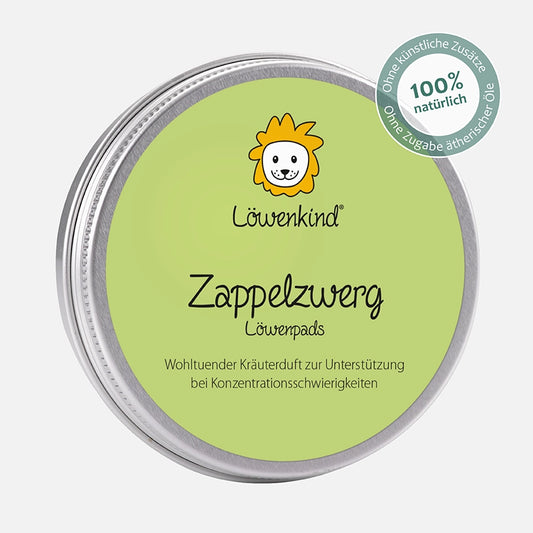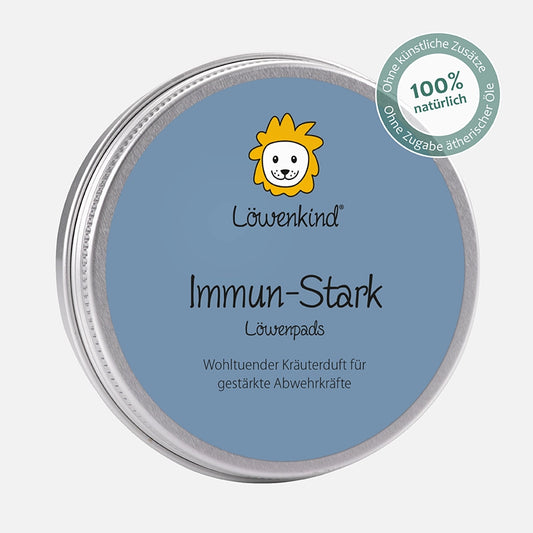Lack of concentration in children is a common issue that concerns many parents. Whether it's studying, doing homework, or playing, difficulties concentrating on a task for a longer period of time can have various causes. In this article, you'll learn more about possible causes of lack of concentration and how you can support your child naturally.
Causes of concentration difficulties in children
Biological causes
- Nutrition : A deficiency in important nutrients such as iron, omega-3 fatty acids or vitamins can impair cognitive performance.
- Lack of sleep : Insufficient or disturbed sleep has a negative impact on concentration.
- Lack of fluids : Inadequate fluid intake can also impair your ability to concentrate.
- Health problems : Chronic illnesses, allergies, and vision and hearing problems can also disrupt concentration.
- ADD and ADHD : Attention deficit disorders (ADD) and attention deficit hyperactivity disorder (ADHD) are common causes of concentration difficulties. These neurobiological disorders lead to problems with focus, impulse control, and persistence on tasks.
Psychological causes
- Stress : Stress at school, family conflicts or excessive demands can impair concentration.
- Emotional stress : Feelings such as anxiety, sadness or low self-esteem can lead to problems concentrating.
- Lack of motivation : Lack of interest in tasks or lack of challenges can also be a cause.
Environmental causes
- Digital distractions : Excessive use of television, smartphones, or video games can shorten attention spans, making it harder for your child to focus.
- Overstimulation : Too many distractions such as noise or unstructured learning environments can disrupt concentration.
- Parenting style : A lack of rhythm, unclear rules or overprotection can also affect concentration.
Social causes
- School problems : Overwhelm by the learning material or teaching style can impair concentration.
- Peer pressure : Social tensions or bullying can negatively affect concentration.
- Lack of social support : Inadequate support from parents or teachers can also play a role.
Other causes
- Under- or over-challenge : Tasks that are too easy or too difficult can lead to concentration difficulties.
- Unclear tasks : Difficulty understanding tasks or setting priorities can also play a role.
Natural measures to increase concentration and motivation
Eliminate disruptive factors
A quiet and pleasant learning environment helps your child focus better on tasks. Avoid noise, screens, and other distractions.
Promote a healthy lifestyle
Make sure you eat a healthy and balanced diet, get enough sleep and exercise.
Take breaks
Breaks are essential for increasing motivation to learn. However, these breaks should take place away from sensory overload. So, keep the television off and your cell phone off. Time in the fresh air, such as a walk, is much more effective for processing what you've learned.
Celebrating successes
Praise is another aspect that has a very positive effect on learning motivation. Efforts should be appreciated, and mistakes should be acknowledged as equally helpful.
Natural support through medicinal plants
Nature offers a variety of medicinal herbs that can help promote concentration. These herbs work gently and effectively to improve concentration without relying on synthetic remedies:
Lemon balm
Lemon balm has a calming effect on the nervous system and can help reduce stress and anxiety. This promotes mental clarity and improves concentration.
St. John's Wort
St. John's wort is traditionally used to lift mood. It can help alleviate mild depression, which often accompanies concentration problems. A stabilized mood supports mental performance.
valerian
Valerian is known for its calming effects and is often used to treat sleep problems. Due to its relaxing properties, valerian can help reduce restlessness and nervousness, indirectly promoting concentration.
Passionflower
This plant is known for its anti-anxiety effects and can help reduce nervousness and inner tension, supporting concentration and mental clarity.
Swiss stone pine flakes
The pleasant scent of pine flakes promotes a peaceful sleeping environment. A good night's sleep is essential for optimal concentration during the day.
Synergy effects of medicinal plants
Combining these medicinal plants can enhance their calming and supportive effects. For example, lemon balm and passionflower together can promote a balanced mood, which is crucial for better concentration. St. John's wort and valerian complement each other by both stabilizing mood and relaxing, thereby supporting mental performance. Stone pine flakes also promote restful sleep, which in turn improves daytime concentration. These synergies help your child relax and concentrate better, both during the day and at night.
Conclusion
Concentration problems in children can be caused by many different factors. Simple measures and natural medicinal herbs offer gentle and effective support to promote concentration. Combined with a healthy diet and a structured daily routine, these herbal remedies can help your child better manage their tasks.
For more information on challenges children face, feel free to browse our blog posts . Here you'll find all sorts of helpful information for parents and children.











